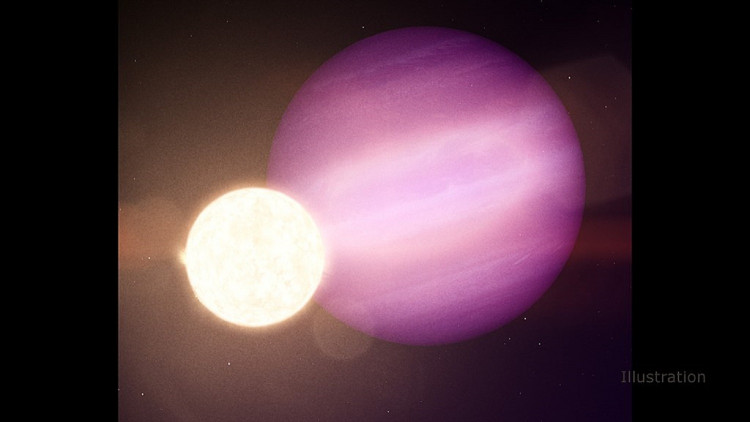Astronomers discovered a distant solar system that may hold clues to the fate of our planets. The Earth will most likely disintegrate, but Jupiter may survive.
The finding of the first known exoplanet to survive the death of its star without having its orbit altered by other planets moving around - circling at a distance equivalent to that between the Sun and our solar system planets - is revealed in a new report published in Nature.
This new exoplanet, discovered with the Keck Observatory in Hawaii, has a mass and orbital separation that is strikingly similar to Jupiter, and provides a crucial glimpse into planetary survivors around dying stars.
"This evidence confirms that planets orbiting at a large enough distance can continue to exist after their star's death," lead author Joshua Blackman, a postdoctoral researcher at the University of Tasmania in Australia, said.
"Given that this system is an analog to our own solar system, it suggests that Jupiter and Saturn might survive the sun's red giant phase, when it runs out of nuclear fuel and self-destructs."
When the Sun dies, it is predicted to go through several phases. It will become a red giant, which NASA defines as "typically the most violent time in the life of a star." This is the point at which Earth will take a battering and become uninhabitable, if not destroyed.
The Sun will then settle into its white dwarf state as a cooling and dying dead star. That's the type of star around which the Jupiter-like planet orbits, researchers said.
A move to a moon of Jupiter or Saturn, according to co-author David Bennett of the University of Maryland and NASA's Goddard Space Flight Center, would be worth exploring. That is, assuming that humanity is still alive.
It means that our long-term goals for interplanetary life should include a look at some of Jupiter's intriguing moons, such as Europa, which is the subject of a scheduled NASA mission.
The Sun will become a white dwarf in 7.8 billion years, thus the latest discovery represents "a snapshot into the future of our solar system," according to Blackman. As the sun ages, it will engulf and destroy its innermost planet, Mercury, and possibly Venus as well. However, Mars, Jupiter, and other distant planets should be spared.
As for Earth, well, nobody knows what will happen to it yet.






